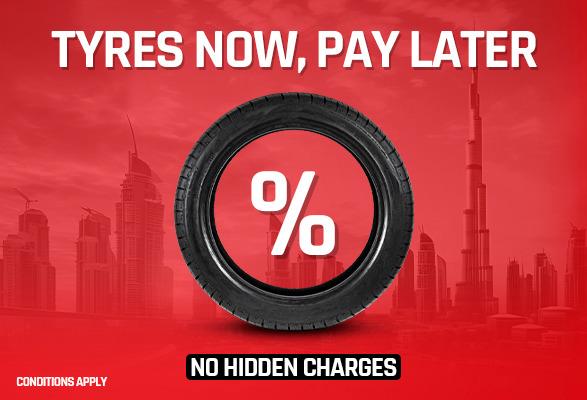Electric Car vs Petrol Car: Which One is Better?
Choosing between an electric car (EV) and a petrol car is a big decision, and the "better" choice depends on your individual needs and priorities. Here are some key factors on which we can compare electric cars vs petrol cars:
- Environmental impact
- Running costs
- Performance
- Range
- Upfront cost
Parameter |
Electric Car |
Petrol Car |
|
Environmental Impact |
Zero emissions |
High emissions |
|
Running Costs |
Lower |
Higher |
|
Performance |
Instant torque, quiet |
Powerful engines, loud |
|
Range |
Lower |
Higher |
|
Upfront Cost |
Higher |
Lower |
|
Availability |
Growing |
Widespread |
|
Charging Infrastructure |
Needed |
Not needed |
|
Maintenance |
Less |
More |
|
Fuel Price Fluctuations |
Stable |
Fluctuating |
|
Noise Level |
Quiet |
Loud |
|
Driving Experience |
Smooth |
Engaging |
|
Future Outlook |
Promising |
Limited |
Petrol Cars
Petrol cars are also called gasoline cars in certain regions. They have an internal combustion engine powered by gasoline (petrol).
Pros:
- Lower initial cost: In general, electric cars are cheaper to buy.
- Greater range: This can cover a greater distance on one tank of fuel than electric cars.
- Infrastructure is widely available: Gas stations are available in many locations.
- Refuelling is faster: Filling a gas tank takes a few minutes, unlike charging e-cars.
Cons:
- Higher running costs: Fuel is more expensive in the long term due to rising prices.
- Emissions: Contribute to greenhouse gas emissions and air pollution.
- Maintenance: Requires more frequent and costly maintenance than electric vehicles.
- Performance: The acceleration and driving experience may be less comfortable than electric cars.
Electric Cars
The electric car, or battery-electric vehicle (BEV), is a type that's powered by a motor and runs on electricity from rechargeable cells.
Pros:
- Environmentally friendly Produces zero tailpipe emission, contributing to cleaner air as well as reduced greenhouse gas.
- Cost-effective: Less expensive to run over the long-term due to lower fuel costs (electricity) and a lower need for maintenance.
- Performance is often faster acceleration and a smoother driving experience.
- Government incentives: Many nations offer tax breaks and incentives for electric cars.
Cons:
- Higher initial cost: Generally, petrol cars are more expensive for the same model.
- Limited range Electric cars are usually shorter in range than petrol vehicles and require more frequent charging.
- Charging Infrastructure: The availability of charging stations is limited, particularly in rural areas.
- Charging times are long: It can take several hours to fully charge an electric vehicle, depending on its charger type.
Differences Between Electric and Petrol Cars
The main differences between electric and petrol cars include:
Power source:
- Electric: Power by rechargeable batteries.
- Petrol: An internal combustion engine is powered by gasoline (petrol).
Emissions:
- Electric: Zero tailpipe emissions contribute to cleaner air and reduce greenhouse gases.
- Petrol: Produces harmful emissions, including nitrogen oxides and carbon dioxide. Contributes to climate change and air pollution.
Operating costs:
- Electricity: Lower operating costs due to lower fuel prices (electricity) and less frequent maintenance.
- Petrol: High running costs because of expensive fuel and maintenance requirements.
Performance:
- Electric: The electric motor provides instant torque, which can lead to a smoother and faster driving experience.
- Petrol: The acceleration and performance of petrol vehicles can vary depending on the engine technology and size. However, they are generally slower than electric cars.
Range and Fueling:
- Electric Vehicles: Limited Range compared to petrol vehicles, with a typical range of 150-400 km on a single battery charge. Charging can take up to several hours, depending on the type of charger.
- Petrol: Greater range, usually more than 500 km on a single tank. Gas stations refuel in minutes.
Noise:
- Electricity: Quieter operation because there is no internal combustion engine.
- Petrol: Engine Noise can be Significant, especially in Older Models.
Total Cost:
- Electricity: Higher initial cost but lower operating costs over time.
- Petrol Lower initial costs but higher operating costs over time.
Infrastructure:
- Electricity: Charging Infrastructure is still being developed, particularly in rural areas. It may be necessary to have access to charging at home or work.
- Petrol Widespread network of gas stations available everywhere.
Technology:
- Electric: Considered more advanced, with features such as regenerative brakes and connected car technologies.
- Petrol vehicles: The technology varies by model and year but is generally less advanced than electric vehicles.
Which is Cheaper Over the Long Term?
The decision between electric and petrol vehicles is a struggle between the upfront costs and long-term operating costs. Here's the breakdown:
Initial Costs:
Electric Vehicles (EVs), in general, are more expensive than their petrol counterparts. It can be a major obstacle for the initial investment, particularly when government incentives may not cover all of it.
Some argue that EVs have lower maintenance costs (fewer moving components), which offsets some of the initial sting.
Operating Costs:
Electricity costs per mile are significantly less than petrol. This is especially true when charging overnight at lower rates. EVs are often more cost-effective, even with the rising price of electricity.
In many regions, the cost of driving an electric vehicle is about half that of a petrol-powered car per mile. Electricity costs are more stable than petrol prices.
In the Long Run:
As EVs age, their lower operating costs can reduce the price difference. Even after factoring in higher initial costs, studies suggest that an EV can be cheaper to own than a petrol vehicle if you keep it for more than 5-7 years.
Best Petrol and Electric Cars in UAE
Category |
Petrol |
Electric |
|
Fuel Efficiency (Hatchbacks) |
Toyota Yaris (22km/L) |
Nissan Leaf (170km - 220km range) |
|
Fuel Efficiency (Crossovers) |
Honda HR-V (15km/L) |
Hyundai Kona Electric (400km - 484km range) |
|
Performance (Sedans) |
Honda Accord (16km/L - 22km/L) |
Tesla Model 3 (427km - 580km range) |
|
Performance (SUVs) |
Toyota Land Cruiser (10km/L - 12km/L) |
Tesla Model X (528km - 563km range) |
|
Luxury (Sedans) |
Mercedes-Benz S-Class |
Porsche Taycan (405km - 513km range) |
|
Luxury (SUVs) |
Range Rover Vogue |
Audi e-tron (449km - 576km range) |
|
Budget-Friendly (Petrol) |
Mitsubishi Mirage (4.1L/100km) |
Changan EV460 (Starting at AED 63,000) |
|
Budget-Friendly (Electric) |
Wuling Mini EV (Starting at AED 20,000) |
Chery eQ1 (Starting at AED 42,900) |
FAQs
Is an electric car better than a petrol car?
It depends on your priorities! Here's a quick breakdown:
Electric cars:
Pros: Environmentally friendly, quieter ride, cheaper to run in the long term.
Cons: Pricier upfront, shorter range, can take longer to charge.
Petrol cars:
Pros: Longer range, a wider variety of models, convenient refuelling infrastructure.
Cons: Higher running costs pollute the environment, noisier.
Which car is better, electric or petrol?
It depends on your driving habits, budget, and environmental concerns. If you mostly drive short distances and care about the environment, an electric car might be a good choice. If you need a long-range car or a wider variety of options, a petrol car might be better.
What are the disadvantages of electric vehicles?
- Pricier upfront
- Shorter range
- Finding chargers can be tricky
- Charging takes time
- Batteries lose power
- Environment still impacted
- Weather dependence
Is electric cars the future?
It's likely! Electric cars are becoming more affordable, have longer ranges, and charging infrastructure is improving. But petrol cars will still be around for a while.
Is there any tax benefit for electric vehicles in the UAE?
Yes, there are several tax benefits for EV owners in the UAE! The government is keen to promote sustainable transportation and has implemented various incentives to encourage people to switch to EVs. Here are some of the key benefits:
- Zero registration fees
- Lower Salik tolls
- Free public charging
- Green loans
- Import duty exemption








































